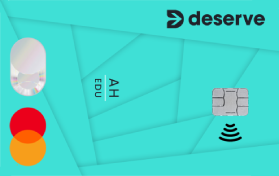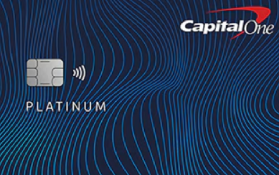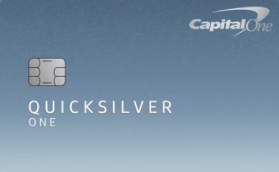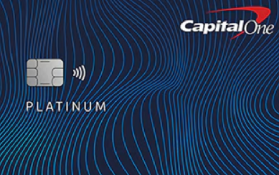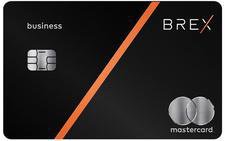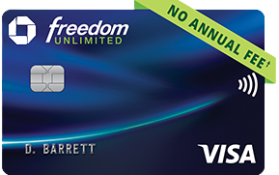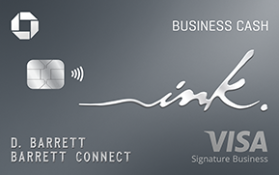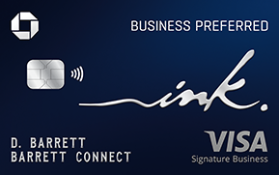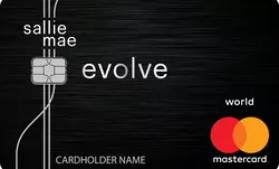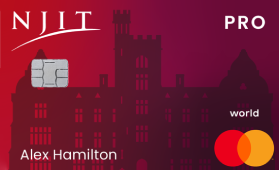Short Review of Best Credit Cards Without SSN
| Name | Best for | Rewards Rate | APR | Apply |
|---|
| Cash Back, Without SSN, Student | 1% Cash Back on all purchases with your Deserve EDU Mastercard. Once approved, you'll automatically start earning Cash Back on all purchases. | 22.99% Variable | Learn more |
Capital One Platinum Credit Card | Without SSN | This card doesn't offer cash back, miles or points. | 29.99% Variable | Learn more |
Capital One QuicksilverOne Cash Rewards Credit Card | Fair credit | 1.5% Cash Back on every purchase. | 29.99% Variable | Learn more |
Capital One Platinum Secured Credit Card | Single mom, Without SSN | This card doesn't offer cash back, miles or points. | 29.99% Variable | Learn more |
Emigrant Bank Brex for Startups | Without SSN | 8x Points on rideshare, including Uber, Lyft, taxi, and scooter.5x Points on flights and hotels booked through Brex Travel.4x Points on restaurants.3x Points on recurring software like Salesforce, Zendesk, Twilio, and more.1x Points on everything else. | None | Learn more |
| Cash Back, 0 APR, No Annual Fee, Daily use | 5% Cash Back on travel purchased through Chase Ultimate Rewards.3% Cash back on dining at restaurants, including takeout and eligible delivery services.3% Cash Back on drugstore purchases.1.5% Cash Back on all other purchases. | 18.99% - 28.49% Variable | Learn more |
| No Annual Fee, Small business | 5% Cash Back on the first $25,000 spent in combined purchases at office supply stores and on internet, cable and phone services each account anniversary year.2% Cash Back on the first $25,000 spent in combined purchases at gas stations and restaurants each account anniversary year.1% Cash Back on all other purchases. | 17.49% - 25.49% Variable | Learn more |
Chase Ink Business Preferred® | Without SSN, Daily use | 3x Points per $1 on the first $150,000 spent on travel and select business categories each account anniversary year.1x Point per $1 on all other purchases. | 20.24% - 26.24% Variable | Learn more |
Celtic Bank Deserve EDU
The Deserve EDU for Students is a great credit-building card for international students or U.S. students with little or no credit history. Instead of an SSN, Deserve will require other identification information about your income or education. You'll need to provide an identification document too, like a passport, visa, or university documents. Students will also benefit from the 1% cash back on all purchases and cell phone protection. And if you spend $500 in the first three months, you'll get a year of Amazon Prime Student for free. There is also no security deposit or an annual fee with this card.
Read more about Celtic Bank Deserve EDU
Capital One Platinum Credit Card
This is a good no-annual-fee option, available even for those with poor or average credit. By making five monthly payments on time, you could be eligible for a higher credit limit. There are no foreign transaction fees and penalty APRs, but note that the regular interest rate is high.
Read more about Capital One Platinum Credit Card
Capital One QuicksilverOne Cash Rewards Credit Card
A great choice for those who want to earn rewards – the Capital One QuicksilverOne will earn them an unlimited 1.5% cash back on every purchase. However, it does come with a $39 annual fee.
Read more about Capital One QuicksilverOne Cash Rewards Credit Card
Capital One Platinum Secured Credit Card
The Platinum Secured Mastercard® from Capital One is a basic secured credit card that lacks many benefits, but it lacks fees and charges too. What sets it apart from other secured cards is the fact that the security deposit could be as low as $49, while your credit limit is $200 (max $1000). After five billing cycles, Capital One might raise your limit, assuming you’ve made all your payments on time.
Read more about Capital One Platinum Secured Credit Card
Emigrant Bank Brex for Startups
You’ll need an EIN (Employer Identification Number) to apply for the Brex for Startups, a business card that earns rewards. Although this card doesn't take personal credit score into account, it will instead use the business' financials to determine creditworthiness. There is also no personal guarantee nor an annual fee.
Read more about Emigrant Bank Brex for Startups
Chase Freedom Unlimited®
The Chase Freedom Unlimited® is one of the best rewards credit cards you can get without an SSN. However, a good credit score is needed to get approved. It will help if you've already had a credit card in the U.S. without SSN or if you've been an authorized user of a credit card. In case your credit score is good to excellent, you can apply for this great card with your ITIN.
Read more about Chase Freedom Unlimited®
Chase Ink Business Cash®
A great business card that offers a sign-up bonus, great rewards in common business expense categories, and an intro 0% APR on purchases for the first 12 months (17.49% - 25.49% variable after). It will earn you a 5% cash back rate on the first $25,000 spent on office supplies and telecommunication purchases. However, you will need good credit to get approved for it.
Read more about Chase Ink Business Cash®
Chase Ink Business Preferred®
Like the Ink Business Cash® credit card, this is also a Chase card, and you can apply for both with your ITIN. The rewards program of this one is more travel-oriented, and unlike the Ink Business Cash® card, it has a $95 annual fee. Good to excellent credit is required too.
Read more about Chase Ink Business Preferred®
What is a social security number, and why do most card issuers require it?
A social security number is a nine-digit identification number issued by the U.S. government to U.S. citizens, permanent residents, and temporary residents with a work permit. The government uses it to track earnings and the number of years worked.
The reason why most credit card issuers require SSN is for identity verification, according to the USA Patriot Act. The act aims to prevent terrorists from opening a bank account or lend money and helps track money laundering.
You’ve also probably noticed that for each credit card there is a certain credit score required for approval. Your credit history in the U.S. will determine your credit score, but you cannot transfer it from another country. The major credit bureaus use personal information to track your credit, among which is the SSN. That is another reason why SSN is required when filling out a credit card application.
However, some banks will also accept other identification numbers. One popular alternative is the ITIN, which we’ll explain in the next section.
How to get a credit card without SSN?
The easiest alternative to SSN is to use an Individual Taxpayer Identification Number (ITIN) when applying for a credit card. The ITIN is issued by the Internal Revenue Service (IRS), and it's used to assist individuals in complying with U.S. tax laws. Those who are required to have a tax identification number, but are not eligible for SSN, will get an ITIN. All information regarding the ITIN, including in which cases you can qualify, is available on the IRS website.
If you apply with an ITIN, you'll most likely have to provide additional documents, like your passport and visa. For some, you'll need a checking account at the bank that issues the card. Also, if you're a foreign student, student credit cards without SSN will most likely require your academic information.
The credit cards that offer the best benefits for cardholders usually require good to excellent credit. As we said, a credit score from another country cannot be transferred to the U.S., and you'll have to find a way to build your credit score to have a chance of getting the most lucrative credit card deals. We'd advise you to start with a secured credit card and use it to build your credit. Don't expect many benefits from it but with timely payments, you can use it to pave your way towards a better credit card.

If this sounds like something that suits you, check out the Platinum Secured Mastercard® from Capital One.
Another way to have a credit card, and build credit is using the option of adding authorized users to credit cards without SSN, which most credit cards have. That practically means that you can use and make purchases with the credit card as if it were your own, but you are not the primary account user, and you're not responsible for paying the credit card bills. That can help your credit in the U.S., if the primary cardholder of the credit card makes all payments on time.
Business credit cards might accept an Employee Identification Number (EIN) instead of an SSN on an application.
Which banks don't require a Social Security Number?
There are banks that accept ITIN numbers for their credit card applications. Read carefully the fine print of the credit card to better understand what is needed for approval. If it's designed for people with good credit scores, and your credit history in the U.S. is limited, you'll have to build your credit to improve your approval odds. Your application might get processed, but that doesn't mean you’ll be approved for the card. Below you’ll find information regarding this for some major U.S. banks:
- Capital One – allows you to apply online for a credit card with either SSN or ITIN. They offer several credit cards accessible for people with limited credit, like the Capital One Platinum Mastercard, or the Platinum Secured Mastercard®. If you’re willing to pay an annual fee, you can also go for the Capital One QuicksilverOne.
- Chase – according to Chase, U.S. residents, i.e., people with a mailing address in the U.S. who are over 18 years old and have either an SSN or an ITIN, can apply online for a credit card. We have two of their business credit cards on our list, the Ink Business Cash® and the Ink Business Preferred®, which both require good/excellent credit scores, as it's the case with most Chase credit cards.
- American Express – if you’re from one of the following countries: United Kingdom, India, Mexico, Canada, and Australia, you can use the Credit Passport® powered by Nova Credit to get your credit score transferred from your country to the U.S. That way you can apply for an Amex credit card. However, even if you're not from one of the above-listed countries, you can still apply for an Amex card with your ITIN. They report to all three major credit bureaus. So, if you get approved for one of their cards, it can help build credit.
- Bank of America – all U.S. citizens will have to provide an SSN for a credit card application. They have only two cards that do not require an SSN – Cash Rewards and Travel Rewards (both require good/excellent credit!). If you wish to apply for one of them without SSN, you cannot do it online, and you'll have to submit an application at a bank branch or by phone.
- Citi – credit card applications require an SSN.
- Wells Fargo – credit card applications require an SSN.
Who can benefit from getting a credit card without SSN?
People who live in the U.S. but aren’t eligible for an SSN can benefit from a credit card that doesn’t require one. Those could be immigrants or international students. Their options will be limited until they build a credit history.

Some cards we'd recommend for international students in the USA are the Deserve EDU for Students and the Journey Student Credit Card from Capital One.
Immigrants can opt for the other cards on our list, and it's best they contact the card issuer to get the most correct and up-to-date information on the application process and requirements.
How to compare credit cards which don’t require a Social Security Number?
In order to compare credit cards that don't require an SSN, you'll need to find your available options first. That will vary depending on whether you've just moved to the U.S. or you've been living here for some time and already have a credit score.

Great cards for those new to the U.S. are the Platinum Secured Mastercard® from Capital One and Petal® 2 “Cash Back, No Fees” Visa®.
If you’ve already built some credit history here, you can even apply for cards with generous rewards programs, like the Capital One QuicksilverOne or Chase Freedom Unlimited®.
Are there any other alternatives to credit cards without SSN?
In case you failed to qualify for any credit card, you still have some other alternatives. A popular alternative are prepaid cards, which you can use everywhere where credit cards are accepted. However, a prepaid card will lack many benefits that credit cards have. You cannot lend against them; you can only spend the money you’ve put in the account. Their major drawback is that they don’t help with credit building.

American Express offers some prepaid cards that don’t require a social security number, and those are the Bluebird® American Express® Prepaid Debit Account and the Serve® American Express® Prepaid Debit Account.
FAQ
Can a Non-U.S. Citizen Apply for a Credit Card?
If you have an SSN, you can apply for most credit cards even as a non-U.S. citizen. However, without an SSN it will be more complicated, but you can still find credit cards that don't require one. Usually, you will have to provide an ITIN, or another identification number, like your passport number. Each credit card issuers have different requirements, and you should inform yourself directly from their representative.
Can an ITIN Number be Used as SSN?
Although an ITIN Number has the same nine-digit format as an SSN, and some credit card companies might accept it, those two are not the same. SSN is used to track earnings and numbers of years worked, so only U.S. citizens, permanent residents, and temporary residents with a work permit can apply for it.
Is it possible for immigrants to build credit in the U.S.?
Yes, if they get a credit card that reports to one or more of the three major credit bureaus: Experian, TransUnion, and Equifax. If you want to build a good credit score, make sure to meet all payments on time. A good credit score will get you the best deals on credit cards and loans.



